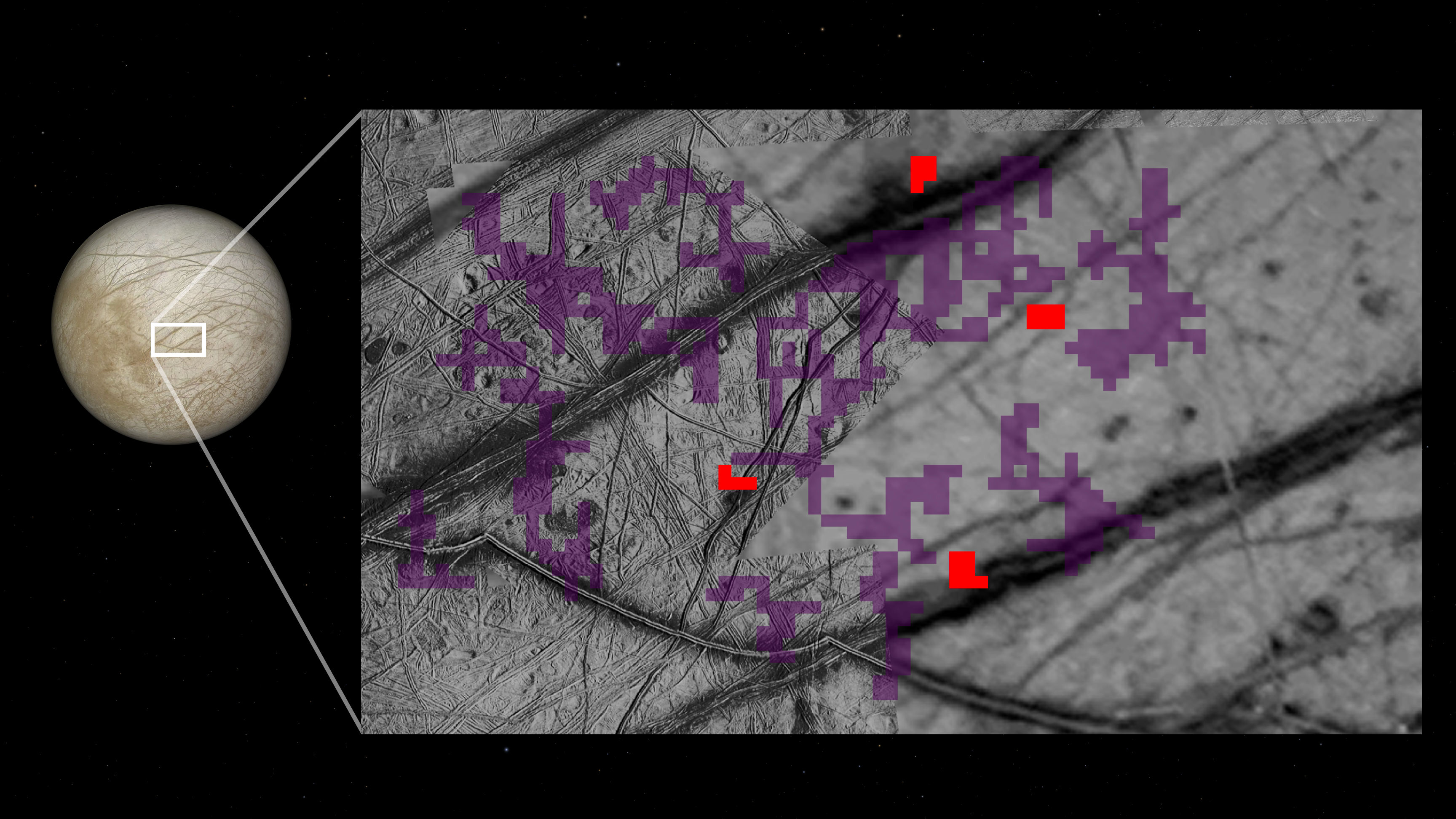Is Club Drug 'Special K' a Quick Fix for Depression?

Get the world’s most fascinating discoveries delivered straight to your inbox.
You are now subscribed
Your newsletter sign-up was successful
Want to add more newsletters?

Delivered Daily
Daily Newsletter
Sign up for the latest discoveries, groundbreaking research and fascinating breakthroughs that impact you and the wider world direct to your inbox.

Once a week
Life's Little Mysteries
Feed your curiosity with an exclusive mystery every week, solved with science and delivered direct to your inbox before it's seen anywhere else.

Once a week
How It Works
Sign up to our free science & technology newsletter for your weekly fix of fascinating articles, quick quizzes, amazing images, and more

Delivered daily
Space.com Newsletter
Breaking space news, the latest updates on rocket launches, skywatching events and more!

Once a month
Watch This Space
Sign up to our monthly entertainment newsletter to keep up with all our coverage of the latest sci-fi and space movies, tv shows, games and books.

Once a week
Night Sky This Week
Discover this week's must-see night sky events, moon phases, and stunning astrophotos. Sign up for our skywatching newsletter and explore the universe with us!
Join the club
Get full access to premium articles, exclusive features and a growing list of member rewards.
About 30 million Americans suffer from depression, and when a sudden wave of severe symptoms hits them, there's no instant fix. The most commonly prescribed drugs — Prozac, Celexa and Zoloft — take a few weeks to kick in, and in the meantime, depressed people are at an escalated risk of suicide. More than half the time, the prescribed drug doesn't end up working at all, and patients must start over with a different treatment.
But there's a new drug in town: ketamine. It's not new, exactly — it has been used as an anesthetic for decades, and it's a popular drug among night clubbers (called, in that context, "Special K"). But after noticing the euphoric effect the drug seems to have on anesthetized patients, psychiatrists have begun conducting clinical trials of ketamine as an anti-depression medication. The initial results are extremely promising.
"Once the patient takes ketamine, it causes euphoria and a rapid antidepressant effect within two hours," said Asim Shah, associate chief of psychiatry at Ben Taub General Hospital in Houston and a professor at Baylor College of Medicine, where the new study is taking place. Furthermore, ketamine helps a greater proportion of the affected population than traditional antidepressants. Prozac and other treatments each improve conditions for only about 30 to 40 percent of the patient population, barely outperforming placebos; meanwhile, a single infusion of ketamine washes away the symptoms of 80 to 90 percent of patients who try it, Shah said.
Scientists understand how ketamine chemically affects the brain, but they don’t quite know why it alleviates depressive symptoms. According to Ken Robbins, a clinical professor of psychiatry at the University of Wisconsin-Madison, ketamine binds to portals in the brain called NMDA receptors; this prevents a chemical called glutamate from occupying the same spots. Because glutamate revs up the system and can cause cell damage, ketamine has a sedative effect by blocking it. Somehow, this causes euphoria. "The hypotheses for why ketamine might be helping depression are in their infancy," Robbins said. Whatever the explanation, "it's a very different mechanism from that of other anti-depressants we now use. I think what we're seeing is there may be a whole other neurotransmitter system that plays a role in depression that we weren't aware of." [Top 10 Mysteries of the Mind]
In the new study — a joint effort of Baylor College of Medicine's Neuropsychiatric Center and researchers at Mount Sinai Hospital — depressed patients are given one dose of ketamine, and doctors monitor how long this keeps their depression at bay.
"We're seeing the benefits lasting a few days to a few weeks," Shah said. The researchers are already planning a follow-up study in which six infusions of ketamine will be administered. If the positive results continue, Shah believes the Food and Drug Administration will eventually approve the drug for use as an antidepressant; he hopes it will become available in two years, though the drug will be more expensive than the $4 per month cost of generic versions of Prozac.
The researchers suspect that ketamine — which is addictive, and must be administered intravenously — will most likely end up being used in tandem with other drugs, rather than replacing them. It would make a good temporary fix, significantly reducing patients' suicide risk, while they wait for longer-term treatments to kick in.
Get the world’s most fascinating discoveries delivered straight to your inbox.
Some doctors are administering ketamine as a quick fix for depression already. "The fact of the matter is people have picked up on the promising research results, and doctors are prescribing it off-label without FDA approval. Even if it is not approved, when you tell a patient, 'I have an anesthetic agent that is an instant fix for your depression,' they want it," Shah said.
This puts doctors at risk of getting sued if the unapproved treatment turns out to be ineffective, and the scientists say it would be best for doctors and patients to wait until the research process has run its course.
"I don't want people to think that taking ketamine illegally or from the streets will treat depression," Shah said. "Taking the wrong dose or taking too much of it might make you even more psychotic."
Follow Natalie Wolchover on Twitter @nattyover. Follow Life's Little Mysteries on Twitter @llmysteries, then join us on Facebook.
Natalie Wolchover was a staff writer for Live Science from 2010 to 2012 and is currently a senior physics writer and editor for Quanta Magazine. She holds a bachelor's degree in physics from Tufts University and has studied physics at the University of California, Berkeley. Along with the staff of Quanta, Wolchover won the 2022 Pulitzer Prize for explanatory writing for her work on the building of the James Webb Space Telescope. Her work has also appeared in the The Best American Science and Nature Writing and The Best Writing on Mathematics, Nature, The New Yorker and Popular Science. She was the 2016 winner of the Evert Clark/Seth Payne Award, an annual prize for young science journalists, as well as the winner of the 2017 Science Communication Award for the American Institute of Physics.
 Live Science Plus
Live Science Plus






